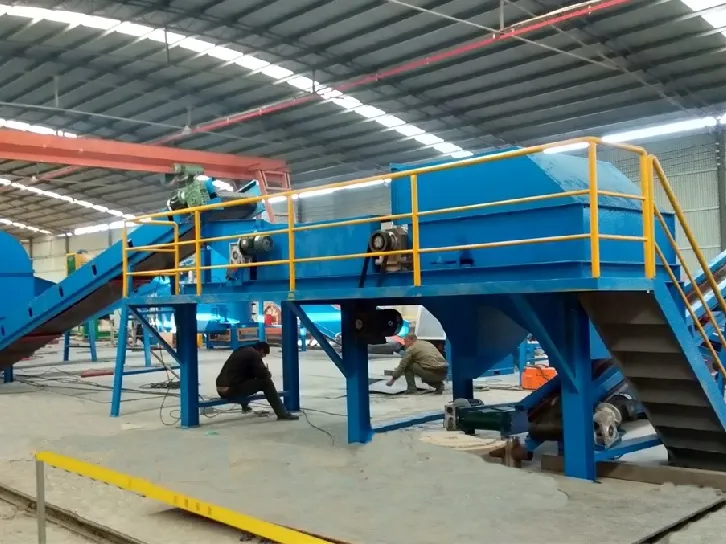

Aug . 01, 2024 02:58 Back to list
How to Get Rid of Old Electronics A Comprehensive Guide
In today's rapidly advancing technological landscape, we often find ourselves with outdated electronics taking up space in our homes. From old smartphones to bulky televisions, these devices not only clutter our living spaces but can also pose environmental hazards if disposed of improperly. Therefore, it is essential to know how to responsibly and effectively get rid of old electronics. Here’s a comprehensive guide to help you on your journey towards decluttering and making eco-friendly choices.
1. Assess and Organize Your Electronics
Before you can get rid of your old electronics, it's vital to assess what you have. Go through your gadgets, chargers, cables, and other electronic items. Separate them into categories items that are functional, items that are partially broken, and those that are completely non-functional. This organization will help you determine the best course of action for each type of device.
2. Try to Repair or Donate
For devices that are still in working condition, consider repairing them if they have minor issues. For instance, a smartphone with a cracked screen can often be fixed for a fraction of the cost of a new device. If your electronics are functional but simply no longer meet your needs, consider donating them. Many organizations, such as schools, charities, and local non-profits, would greatly appreciate working electronics. Additionally, some organizations specialize in refurbishing old devices for those in need.
Another option to consider is selling your old electronics. Websites like eBay, Craigslist, or specialized platforms like Gazelle allow users to sell used tech. You might be surprised by how much you can earn from devices that you no longer use. Just ensure that you erase all personal data from your devices before selling them, particularly smartphones or laptops.

4. Recycle Responsibly
When it comes to non-functional or obsolete electronics, recycling is the best option. Many components found in electronics can be hazardous to the environment, such as lead, mercury, and cadmium. Look for e-waste recycling programs in your area. Many cities have designated drop-off sites, or you can also check if local electronics retailers offer recycling programs. Some manufacturers have take-back programs that ensure proper recycling of their products.
5. Participate in E-Waste Collection Events
Many communities host electronic waste collection events, providing an excellent opportunity for residents to dispose of their old electronics safely. These events often allow you to drop off your electronic waste for free or at a minimal cost. Check with your local waste management or environmental agency for upcoming e-waste collection events in your area.
6. Understanding Local Regulations
It's essential to be aware of local regulations regarding electronic disposal. Certain jurisdictions have laws prohibiting the disposal of e-waste in landfills. Familiarizing yourself with these regulations will help you ensure that you are compliant and also contribute to proper environmental stewardship.
Conclusion
In conclusion, getting rid of old electronics doesn't have to be a daunting task. By assessing your devices, considering repair or donation, selling unwanted items, recycling responsibly, and participating in community e-waste events, you can effectively declutter your space while being environmentally conscious. Remember, responsible disposal not only helps you clear out your home but also plays a crucial role in protecting our planet for future generations.
Latest news
Troubleshooting Common Eddy Separator Problems
NewsJul.04,2025
The Role of Metal Recycling Plants in Circular Economy
NewsJul.04,2025
The Impact of Recycling Line Pickers on Waste Management Costs
NewsJul.04,2025
Safety Features Every Metal Shredder Should Have
NewsJul.04,2025
How Industrial Shredders Improve Waste Management Systems
NewsJul.04,2025
How Cable Granulators Contribute to Sustainable Recycling
NewsJul.04,2025